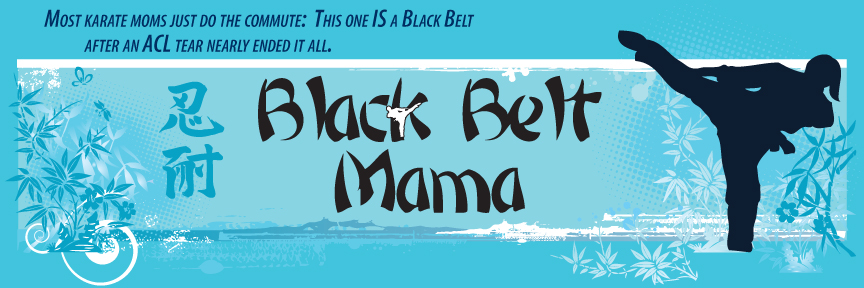December 3, 2007
On Killing
The book that I just finished reading is called "On Killing: The Psychological Cost of Learning to Kill in War and Society" by Lt. Col. Dave Grossman, and it was a fascinating read. Grossman addresses the psychology of killing in war and also relates his research to the never-ending escalation of violence in everyday society. One of my karate instructors recommended the book and I feel compelled to recommend it to you.
The basic premise of the book is built on research that found that only 10-15 percent of soldiers in wars before Vietnam actually would fire on enemies. He cites startling evidence, studies and interviews that really surprised me. When a non-military person thinks about war, you tend to imagine Rambo-like men and women who don’t mind shooting at the enemy. Nothing seems to be further from the truth. It seems that most humans (they estimate about 98% in the book) have a built in aversion to taking another person’s life.
Due to increased training, the firing rate in Vietnam was between 90-95 percent. But as we all know, in this country, there was a price to pay for it. My generation only knows what history books have told us about the Vietnam War, the discontent, the protests, the poor treatment of our soldiers upon their return, and that it was really a war like no other.
Grossman talks extensively through his book about the psychological cost of not only the increased firing rates and the effects of war on our soldiers, but also the psychological toll that the backlash of the Vietnam war left on our troops.
Fast forward to society today, where aggravated assault incidences are through the roof. Grossman compares the training methods that increased our firing rates to the video games available to the general public. He also compares the training methods to the violent movies and television shows that we are bombarded with on a daily basis. The comparisons and statistics are sobering.
Whereas human beings as a whole used to reject the idea of taking another person’s life, now "the inflicting of pain and suffering has become a source of entertainment: vicarious pleasure rather than revulsion." Grossman uses the example of teenagers watching violent horror movies and cheering when someone is taken out in a particularly vicious way. Surrounding people with popcorn, candy, and friends while watching violent "entertainment" only serve to desensitize people further to violence.
Video games that put a player in the role of a killer, and amusement park games where "bad guys" pop up and you have to shoot them may seem innocent to one who doesn’t really think about what they’re doing. But when you find out through Grossman’s book that these games are the exact same "training devices" used to turn our armed forces into men and women who will fire their weapons, it makes perfect sense that we have Columbine-like incidents and scares on a fairly regular basis.
If you have any interest at all in learning about the psychology behind killing and how it is having an effect on the society (particularly children) today, it’s a book you won’t want to miss. As a parent, I think it is an important read for any person raising a child in today’s society. As a martial artist, it provides a unique look at the mindset of one put in a situation where they must kill or be killed. I should warn you that Grossman does not mince words. He relays stories of those who have been in terrible combat situations, which sometimes made me need to put the book down and take a breather. Upon completion though, you are left with a clear picture of what violence in the media is doing to those who view it, and a desire to do what you can to change it.
***As food for thought, go here and run through the pictures and make sure to answer the poll questions so you can see the results.
***The latest review is up at The BBM Review. If you have an elementary aged child and you’re interested in finding some supplemental learning games for them, check it out. The Baby Jamz review is up and the contest is LIVE! All you need to do is stop over at The BBM Review, and leave a comment on the Baby Jamz review for your chance to win!























This sounds like a very interesting book.
One of the most important aspects of my training – and one that I have tried to instill in my 11 year old daughter – is that you must be willing to do “the unthinkable” if it will save your life.
My daughter balks at the idea of jamming her thumbs into an attackers eyes, but if that’s going to keep her from being abducted or raped some day, I can only hope that she is able to put her normal aversion to hurting someone else aside.
I don’t want to sound like I’m advocating the society wide desensitizing of violence that we are seeing with our culture’s choices for entertainment… but as someone who has trained the ability to defend my safety up to and including taking an attacker’s life, I think an important aspect of self-defense is to be able to reach that mindset.
My compassion for an attacker only extends far enough to do no more damage than necessary to ensure that I stay safe.
Oh, BBM, you keep picking these controversial topics! This book came out in the mid-90’s, and of course, a lot’s happened since.
While I definitely agree that there is such a thing as “too violent” for kids (or adults, for that matter), viewing this violence doesn’t create little murderers, no more than playing “war” or “Cowboys and Indians” did when I was kid.
Millions of people play video games, even violent ones, and manage to avoid assaulting anyone. In the 80’s this same alarmist argument was made about how Dungeons and Dragons was creating little murderers. In the 70’s it was Black Sabbath (or whatever other band you want to throw in). It’s a cycle and there’s always something out there to blame besides ourselves as parents.
http://www.pbs.org/kcts/videogamerevolution/impact/myths.html
The link is to an article by an MIT professor on this very subject published at PBS.org with references. Numbers 1, 2 and 5 are particularly relevant to this book.
To be clear, there are a myriad of reasons I won’t let my 12 year old son watch Gladiator, Saw 3 or play Grand Theft Auto. That he might in turn become a murderer isn’t one of them.
Steve: I’m not saying, and I don’t think Grossman is either, that playing video games or watching violent movies turns people into murderers. But you can’t deny that seeing violent things and continual exposure desensitizes people to violence. It’s been proven time and time again. It’s the exact same thing with rapists. No one views pornography and goes out and decides they’re going to rape someone tomorrow; it’s not an instant brainwashing. However, over time, there is certainly a progression of violence that is correlated to exposure to violence and sexually objectifying media. I think it’s especially relevant when we see the media glorifying certain types of behavior, violence included. Grossman talks in his book about the movies people were exposed to 20-30 years ago as opposed to now. There’s a huge difference. We see many more vigilante type plots these days and people “taking matters into their own hands.” The media influences viewers in many ways, this being just one small example.
Wayne: One of the things that I didn’t bring up in the post, but that it made me think about while reading is exactly what you’re talking about. We often hear about women in particular not being able to hurt their attackers because they can’t bring themselves to hurt another person (even when that person is a rapist and worse). What the book made me realize is that the not being able to hurt someone isn’t necessarily a female trait, but instead a human trait. I agree with you that as a martial artist, one has to be able to train to overcome this. Grossman describes a couple different techniques used by martial artists in the book that are graphic and seemingly would be effective in achieving that mindset if the situation warrants it.
Nice to hear from you.
First, did you check out the link? It’s a short article, but links to some good source material.
Second, Grossman was famous for repeatedly calling video games “murder trainers.” His argument was clearly that video games create murderers. While this may not be what you got from his book, his position over the years is very clear.
Regarding your porn analogy (and again, for the record, I’m not a big fan, but won’t say I’ve never seen one), the reality is that millions upon millions of people view pornography and don’t ever rape anyone. Porn is a multi-billion dollar industry, largely responsible for bringing the internet to the masses. While a rapist may watch porn, porn doesn’t create rapists. And I’m not a psych expert, but aren’t rapes supposed to be more about control than sexual gratification? Porn, on the other hand, is strictly the latter.
As I said, I agree that there are things that are too violent for kids. I don’t allow my kids to watch horror movies or anything like that. But, and this is a big but, there is a huge leap from being too violent to being a murder trainer or creating of my kids murderers. The arguments you’re making regarding desensitizing kids to violence were also made about cartoons. I agree that kids can become desensitized to fictional violence, and I agree that this isn’t good. But even the most jaded of teenager continues to understand the difference between reality and fantasy, unless there are OTHER factors involved, including quality of home life/parenting, general mental and physical health, or drug or alcohol addiction.
I agree with Steve. Rape is all about power and control.
As a 20-year veteran, I saw a lot more violence than I ever wanted to see and the truth is that it affects you. Up close and personal is way worse than seeing any video of it.
As a society, we have conditioned ourselves to realize that video games, movies and television aren’t real life. News clips, on the other hand, affect us almost as much as the up close and personal contact.
I don’t agree with the stats in the book. My father was in WWII and he didn’t see soldiers holding back. Even so, the enemy was still defeated if even by machinery instead of individually.
Agreed that rape is about power but I do believe that there is a progression of violence with people who perpetrate crimes against another being. And we all know that your typical playboy-ish type of stuff isn’t the only stuff available. There is plenty of pornography that is violent and disturbing and I strongly believe that it, combined with other factors, can influence a person and desensitize them to violent acts.
I agree that video games don’t a killer make, but when you look at the background of kids who are school shooters, they all have similarities. For well adjusted kids who come from loving homes, they may be just games; but to those who aren’t so fortunate, the games could be an influencing factor. I don’t think it’s just one thing; (neither does Grossman for the record) but to deny that it has any influence at all is like denying that cigarettes can cause cancer.
RT: Thanks for your comment and your insight. It makes me think about when they were showing the beheadings in the Middle East on the nightly news.
I have the distinct ‘pleasure’ of growing up, well – right now – and think my perspective is just a little bit different then people even from the generation before mine.
Everyone here is right, of course. No, video games don’t create murders, but violence is accepted far too easily. What BBM said is right – it effects you, and there is no way you can deny that. I don’t think many people realize HOW much effect it has on young kids today. No, many don’t become dangerous, perhaps – but they (we) become so used to violence it can’t be good. I know countless boys and girls around my age (I’m 19, by the way) who play astoundingly violent games constantly. And it really IS scary. Some have serious issues of their own, and their violent potential is acted out very disturbingly when they play. I don’t think it CAN be viewed as JUST a game. By playing so realistically at death, it makes it almost easier to deal with, and accept, and even commit.
Murder, violence – teens, at least the ones where I’ve lived, joke at murder, but more than that, ARE more violent. My father tells me that when he was growing up most of the students in the school kept a gun in their car, and there was never a problem. He’d never heard of a school shooting. Today, my classmates are stabbed in the hallways, kids are shot blocks from school, our schools are closed from bomb and school shooting threats. Kids DIE. They KILL each OTHER. And, yes, I went to the poorer ‘ghetto’ schools, where violence was perhaps more commonplace than one in a nicer neighborhood – but not that much more. And they say it doesn’t effect you. That we’re not growing more violent.
Maybe, even though I’m a teen, I’m overly sensitive – I’d give you that – but by PLAYING at very REAL violence, it gives action to anger, direction and thought to what might be only ideas. It’s not exactly the same as ‘cowboys and indians.’ The images – not just on games but on TV and movies – make it almost more accepted, normal. Like BBM said, over time it creates a more violent society – and a society that accepts more violence. I think that’s the worst part – that it’s looked at as so NORMAL. That it doesn’t SHOCK.
I honestly think my generation is more dangerous than any before.
And as a side note, as a martial artist, you’re right – we’re trying to train ourselves to BE desensitized to violence, in that we don’t balk when faced with a situation where we might need it. God-willing, we’ll never face that situation, but the way the world is going… But that desensitization is almost good. Because most people DO balk at truly hurting others – thank goodness – and by not fearing and freezing we can, at least, gain that advantage and have more of a chance of defending ourselves from people who don’t.
Excellent post. I’ve got to read that book.
BBM, I hear ya. And I understand that this isn’t the entire premise of the book.
I want to add one last thing, and then I’m going to get off my soap box and go on about my day. 🙂 Most kids play video games. One could just as easily conclude that hamburgers are a material contributor to school shooters. Most kids eat hamburgers, and I’d be willing to bet that the kids who kill themselves and others all ate hamburgers, too.
Instead of pointing to something that just about every kid does, I think the key to figuring this out is to look at what’s different. You pointed out a couple yourself. The difference we can both agree on is home life/good parenting. A few you didn’t mention are drug addiction and/or sound mental health. These are the things that are different. My concern is that I believe that these arguments about video games are a smoke screen actually drawing attention away from the real factors involved. Bad parents are always looking for a way to absolve themselves of both responsibility and guilt.
And once again, I don’t advocate excessive violence on TV or in video games. I don’t allow my kids to watch the shows or play the games. I just don’t happen to believe that it’s going to lead them potentially down a slippery slope to murder. Mental illness might. Drug addiction might.
Although most people would agree that violence in the media can help to desensitize people, I also believe that it can have the reverse effect as well. The types of movies and books that take a more realistic close-up view to the violence such as Braveheart, Saving Private Ryan, Schindler’s List, and Band of Brothers, to name a few, allows the viewer to share in the emotions of the characters. For me, this type of media violence can turn my stomach, make me angry, or bring a tear to my eye. It makes me think of things like “how far would I go to save my own life”, “would I be able to take someone else’s life”, and “would I be able to sacrifice my own life to save someone else”. I believe that people should be exposed to some of these violent materials so that they can get a better appreciation of what violence can lead to instead of just playing games where the object is to kill as many people as you can, and if your character dies you can just hit the reset button and start over again. If children are exposed to these more realistic depictions of violence, in a safe environment where the child can discuss things they see with an adult of course, then hopefully they would be more hesitant to do something violent until the time came when it is necessary.
This is a fascinating conversation. Glad to have read it and thanks for the heads up on the book BBM. As bad as it may sounds, I think this might make a great XMas present for somebody on my list who I’m always trying to find interesting things for.
He got me last year with the book Catch-22.
I think society has become desensitized to violence. Popular culture seems to glorify murder and mayhem as if it were a joke. And yet violence is supposedly on the decline on a global scale. But some of these martial arts influenced video games are so graphic they’re sick. This has to have a subliminal effect on the kids that are playing them.